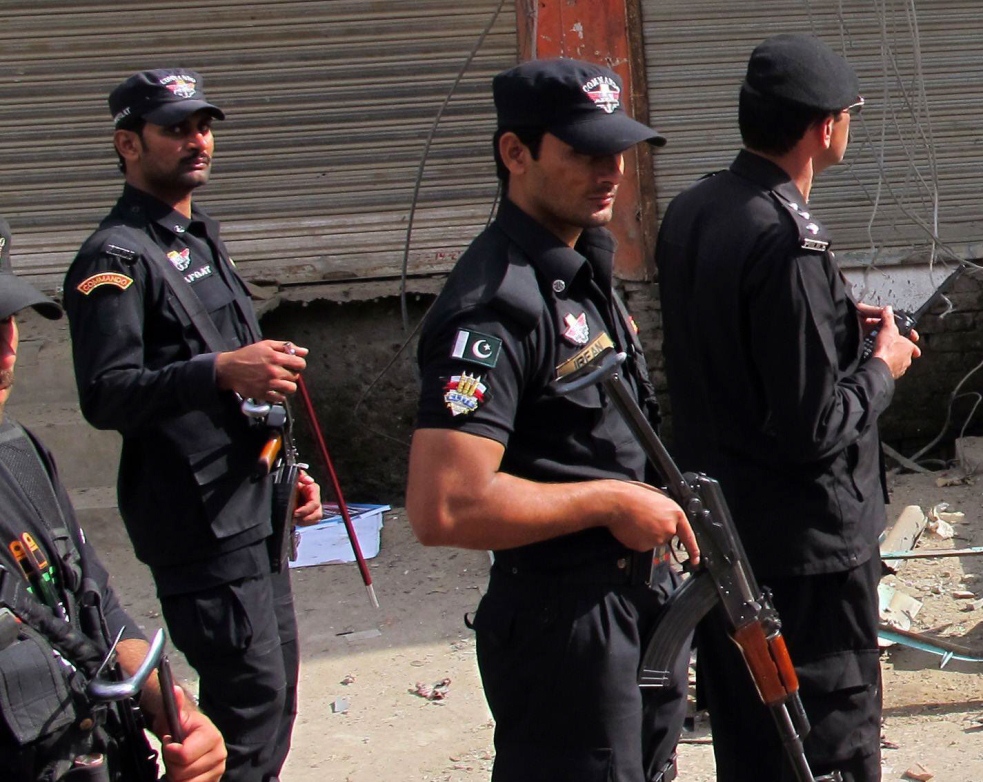
A research-based strategy has been introduced in K-P to scientifically and systematically understand trends of terrorism.
A research and analysis wing has been established at the counter-terrorism department (CTD), while a separate section would be set up at the Central Police Office (CPO). To fill vacancies for these entities, posts have been advertised for recruitment by the Public Service Commission.
One step ahead
The new section will be headed by a PhD in sociology, criminology, psychology or anthropology, within the 35 to 45 year age bracket. Both men and women are welcome to apply.
A new batch: 274 police recruits complete training in Swabi
“There will be a director (BPS-19), a deputy director (BPS 18), nine assistant directors (BPS-17), a narcotics analyst (BPS-17), three posts for telecom assistant directors (BPS-17), two programmers (BPS-17), 24 qualitative analysts (BPS-16), as many posts of quantitative analysts (BPS-16) and four women computer operators (BPS-12),” a police official told The Express Tribune.
“The problem is the recruitment process is very slow and we need these people on an urgent basis,” he said.
“IGP Nasir Khan Durrani has given us the target ‘one step ahead of terrorists’ and this is [only] possible by establishing a comprehensive database of criminals and terrorists.” A CTD official pointed out it was also important to have the capability to analyse this data to identify trends and then develop a counter strategy.
Techphobia
He said every effort was being taken to remove “technophobia” deep-rooted in the police.
Police sub-inspector killed, constable injured in Mardan
“New gadgets were provided to police such as geo-tagging devices, SIM[-based] devices to check stolen vehicles and Android-based applications to arrest proclaimed offenders,” he said. “Also, the computerisation of FIRs on a centralised server is one of the other steps.” He claimed state-of-the-art software had also been installed in the department.
“Authentic data is the key requirement for correct analysis. We had a few problems in this regard as available data was in three different formats and incomprehensive. As a result, we have launched a drive to update our database and perform our analysis at the same time,” he added.
Prioritising research
When contacted, DIG Fasihuddin told The Express Tribune, research-based strategy was a must. “I researched 28 suicide bombers as president of the Pakistan Society of Criminology,” he said. “I discovered a very interesting trend; none of them was a seminary student [at the time they conducted the attacks],” he recalled. “It is against all common beliefs,” he argued.
“If a policeman is slain in what appears to be a target killing, the research wing of CTD is bound to do a post-incident analysis,” said another official. “It will be shared with policymakers and all relevant officials to enable them to take appropriate steps,” the official stated.
“Recently, a policeman from Kohat was killed in Badhaber in Peshawar. He had Rs1 million with him and wanted to buy a car,” he said. “We analysed the incident and it seems he was unarmed despite clear cut instructions to all policemen to carry at least a pistol when travelling. He also violated instructions of not carrying cash.”
The officer said each attack was analysed and this enabled police to take certain preventive measures. He said proper examination would help police overcome some of its shortcomings as well.
Little red book
Durrani has ordered a red book for the police. This has been finalised and is being printed.
“We are in the process of introducing it,” said the official, adding the booklet would contain the complete record of over 300 terrorists and most wanted criminals. He said the head money on these criminals would also be specified in the document. “The red book will prove as a resource for crime intelligence,” he added.
“It will be provided to each police station, intelligence agency and all other relevant authorities in the province,” he said.
He added such a step would help motivate the police and the public to push towards the arrest of wanted people so they can earn the bounty.
Published in The Express Tribune, March 16th, 2016.
1732762837-0/Taylor-(3)1732762837-0-405x300.webp)










COMMENTS (4)
Comments are moderated and generally will be posted if they are on-topic and not abusive.
For more information, please see our Comments FAQ